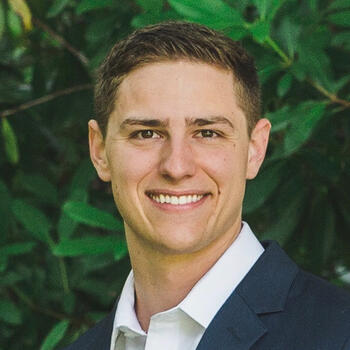Jordan Wiker (Electrical Engineering) | Developing a Learning Management System (Telespazio VEGA Deutschland Internship)
Jordan Wiker (Electrical Engineering) | Developing a Learning Management System (Telespazio VEGA Deutschland Internship)

During the summer of 2018, I was fortunate enough to receive a grant that allowed me to complete an engineering internship in Germany. Specifically, I worked as a Special Project Intern at Telespazio VEGA Deutschland from June 18th to August 17th. Telespazio is a European aerospace company that provides major industry players with engineering services. Some of their customers include the German Aerospace Center (DLR), the European Space Operations Centre (ESOC), and the European Organisation for the Exploitation of Meteorological Satellite (EUMETSAT). Telespazio VEGA Deutschland is headquartered in Darmstadt, Germany, but also has a location in Gilching in order to work with the DLR center located nearby. This Gilching location is where I spent my nine weeks with the company.
As a large corporation with many employees working on many different projects, Telespazio has a collectively large pool of knowledge. Currently, however, they have no method of effectively disseminating that information to new employees, or to existing employees that need to learn new skills. The current method includes multiple in-person training sessions and the review of a daunting collection of PDFs and PowerPoints, and the entire learning process is quite inefficient. Because of this, Prashant Shukla, the Head of Division Operations and Engineering in Gilching, brought me in as an intern to develop a learning management system (LMS).
I spent the first week learning about Telespazio, how it operates in the European aerospace industry, and the issue for which I was there to start developing a solution. By the end of that week I had compiled a list of requirements that the system needed to satisfy, as well as the procedure and test plan I would use to satisfy those requirements during my remaining eight weeks. Specifically, some of the requirements included:
• The system must be web-based and accessible from any work station
• The system must be able to store all training material of all formats in a central, easily accessible archive
• The system must facilitate efficient, easy, and fast creation of learning material
• The system must be modular, meaning that individual learning modules can be combined into courses, and courses can be combined into complete learning programs
The following week I tested several potential open-source solutions, and ultimately chose on that appeared to be the best fit for our needs. For the remaining seven weeks, I systematically worked through the procedure and test plan to verify that the system could meet all of our requirements. By my ninth week, I was able to show Prashant and the rest of the team that the system was up and running, and that it satisfied all but one of the requirements. After a short discussion, we agreed that we could eliminate that requirement, and thus could consider the system a success. Also, because of the open-source nature of the software, Telespazio will be able to run the system I set up without any reoccurring costs.

One of the main mission control rooms at DLR, where Telespazio supports some of the satellite control work.
In addition to my work on the LMS, I got the opportunity to shadow several engineers and operators working in the DLR. This allowed me to see how mission control and antenna ground stations function in the European Space Agency, which was both very interesting and fun. Overall, I spent a combined total of about 5 days shadowing and learning about Telespazio’s roles in DLR.
While the internship experience itself was excellent, the process of securing the internship was rather difficult. The main reason for this was because almost all companies in Germany want engineering internships to last at least six months. This meant that my three-month time constraint was an automatic disqualifier for many of the positions for which I applied. Other than taking a leave of absence for a Spring or Autumn quarter in order to be able to commit to a six-month internship, I do not have a good recommendation for dealing with this time constraint for future students. In the end, I was very fortunate to find a company who was both willing to bring me in for less than six months and also had a project that I was able to complete in that time frame.
Outside of the internship, I thoroughly enjoyed experiencing Gilching, Munich, and several other nearby areas I was able to explore. It was very beneficial to be connected with my exchange buddy Christian Mittermaier, who invited me to multiple events and gatherings where I met even more German students. He also took me to his family farm in the Bavarian countryside, which was especially interesting for me since I grew up on a farm myself. Overall, he did an excellent job expanding my experience and answering all of the questions I had.
Overall, this internship was a great fit for my interests, background, and future aspirations. As a previous NASA employee, it was very interesting to see the European side of many of the aerospace aspects I had experienced in the United States. Also, since I plan on returning to the aerospace industry after completing my Master’s degree, my experience with Telespazio will inevitably be quite valuable. Additionally, I was able use and improve my German since almost all of my day-to-day work and personal conversations were in German. After earning a minor in German as an undergraduate student, it was very rewarding and enjoyable to be able to use my language skills on a daily basis. At the end of my time in Gilching, I was quite sad to leave. I truly enjoyed the work, the area, and all of the new relationships I had formed during my time there. I’m very grateful to The Europe Center and the Freeman Spogli Institute for all of the support throughout the entire process.
